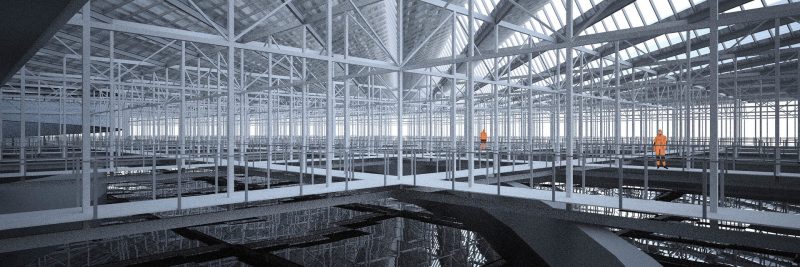Election vow to move fish farms out of the oceans unrealistic says global expert
“There is a lack of experienced management in this area that can’t be built up in five years…and I am not sure who is going to insure these land based fish farms,” – AXA XL Catlin’s global head of aquaculture insurance, Geir Myre.
By Fabian Dawson
SeaWestNews
The federal Liberal election platform pledge to transition salmon farming in B.C. out of the oceans and into closed containment systems, likely on land, by 2025 is unrealistic said a global expert on aquaculture insurance.
“We just don’t have the expertise, the risks are high and so far most of the plans for recirculating aquaculture systems (RAS ) are based on projections and not proven reality,” said AXA XL Catlin’s global head of aquaculture insurance, Geir Myre.
“There is a lack of knowledge, expertise and fully tested technology in this area that cannot be built up in five years,” Myre told SeaWestNews.
AXA XL insures more than a third of all aquaculture operations in the world.
Myre declined to comment directly on the political stance of the Liberals and the other parties in Canada when it comes to open net fish farms, but said that he was speaking from his three decades of experience in the industry.
“My observation of some wanting to push for RAS or land-based fish farms currently is that their claims are contained in glossy material to seek investment dollars.
“(RAS has) less than 2% premium, but over 5% of the losses. This has so far been a loss-making project for us.”
Myre said many of these projections for land-based fish farms also don’t take into account the amount of energy required to run them and other environmental impacts of farming fish on land.
“Some insurers don’t want to insure those kinds of farms because fish can be more easily completely wiped out in recirculated aquaculture systems, often linked to the release of hydrogen sulphide or H2S,” he said.
‘We need more expertise in place before we can insure it… There are many small things that can go wrong…and there are no standards in place which have led to RAS farms being poorly constructed.”
Myre said he is not ‘100 percent negative’ about RAS but wants more studies and facts.
“There is a lack of standards in RAS farms…what we have seen is extremely risky…these farms are big industrial factories that rely on questionable and sometimes unproven technology and we have seen some being completely wiped out,” he said.
“Ultimately, if this move to land happens in B.C., which is unlikely given the five-year timeline, you will be eating factory fish at a high price, not farmed fish from the ocean,” he said.
“And I am not sure who is going to insure these land-based farms…because we are the only global company that does this.”
Meanwhile, a new report from Rabobank, questions whether the 50+ salmon RAS projects currently under development around the world will be able to reach their combined claims to produce over 700,000 tonnes of the fish by 2030.
The report notes that the total global harvest from RAS production of salmon is currently approximately 3,000 tonnes per annum, with no single operator having yet succeeded to break the 1,000-tonne mark.
“Not all of the announced projects from our list will be able to succeed and reach their target volumes, due to potential operational or financial challenges,” the report noted.
Several studies have also shown land-based farms will leave a damaging ecological footprint due to high power consumption and land use or that growing just 75,000 tons of salmon would require 4.16 billion liters of water just to fill the tanks.
A global report on The Evolution of Land-based Atlantic Salmon Farms shows that farming Atlantic salmon in their natural environment — the ocean — is the responsible way to farm.
To move Canada’s current production to a land-based system would require 136 square kilometers of land, which could fit 28,000 Canadian football fields, it concluded.
In addition to a higher contribution to CO2 emissions, growing the global supply of salmon on land would require the same amount of energy per year needed to power a city of 1.2 million people.
Raising land-based Atlantic salmon also costs 12 times more than ocean farming.
(Image: A land-based fish farm in Oslo)


